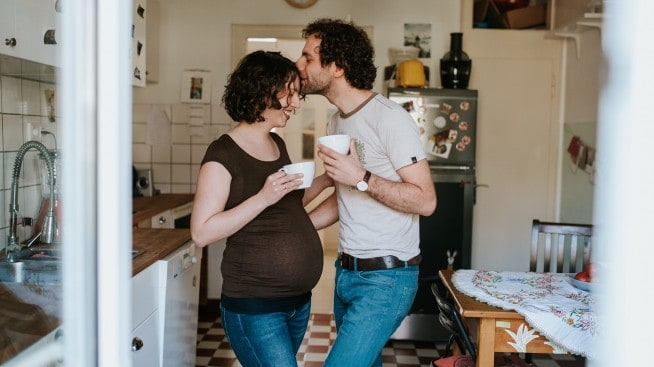What does it mean to be house poor and how can you avoid it?

The term “house poor” is commonly used to describe homeowners who are financially overextended and can’t maintain a balanced budget or handle unexpected expenses. But what does it really mean? In this article, we’ll discuss what house poor signifies, what happens when you experience it and tips on how to help avoid it.
What does it mean to be “house poor”?
Being “house poor” essentially means a significant portion of your monthly income is dedicated to housing expenses. This can cause financial strain and limit your funds for other essentials, like groceries, healthcare and savings.
Being house poor can also impact both your short-term and long-term financial health. It can cause the following symptoms:
- Financial stress: As mentioned above, when you’re consistently spending a large percentage of your income on housing expense — like mortgage payments and property taxes—the financial stress can start to affect your overall quality of life.
- Increased debt: If you’re house poor, you may feel a need to turn to credit cards or other high-interest loans to cover day-to-day expenses, leading to a cycle of debt that can be difficult to get ahead of.
- Limited retirement savings: High housing costs can prevent you from saving enough for retirement, impacting your future financial security.
- Risk of foreclosure: In cases of economic downturn or a personal financial crisis, house poor homeowners may face the risk of foreclosure due to an inability to meet their monthly mortgage payment obligations.
How common is it to be house poor?
Being house poor is quite common. In fact, as of 2024, more than 18 million Americans are living beyond their budgets due to increasing housing costs and mortgage payments.house-poor-study-2024 While the "30% rule"30-percent-housing-2024 (spending less than 30% of your monthly income on housing) doesn’t necessarily apply to everyone, if you’re spending the majority of your income on housing expenses, you might find yourself in a similar situation.
For some, spending even 25% of their income on housing might be too much if they have other significant financial obligations, such as student loans or medical expenses. On the other hand, some may be able to comfortably spend more than 30% on housing if their other expenses are minimal or if they have a somewhat higher income.
Signs you may be house poor
Having a high housing-to-income ratio—especially if with no emergency fund in place—likely means you’re house poor, or getting close to it. If you’re noticing the following signs, you could be spending too much on your home:
- Living paycheck-to-paycheck: If a large part of your income goes toward your housing costs, with little to no money to spend on anything else, you may be house poor.
- Struggling to pay other bills: When housing costs consume a large part of your budget, it often becomes difficult to keep up with other bills. If you find you’re juggling or delaying payments, it could be a sign you’re house poor.
- Cutting back on essentials: House poor homeowners often have to make significant lifestyle adjustments to afford their homes. This might include cutting back on essentials—like groceries, transportation or healthcare—to keep up with your mortgage payments and other housing-related costs.
- Working more than one job: If your bills have surpassed your income and you take on a second job out of necessity, you may be spending too much on your home.
- Experiencing an increase in expenses: Life is unpredictable. Maybe your car broke down, you faced a layoff or had a child. All of these things can drastically change your budget and could leave you facing a house poor situation.
How to avoid becoming house poor
If you want to avoid becoming house poor, or you’re looking for ways to turn around your situation, it’s essential to adopt a strategic approach to homebuying and your financial planning process.
Budget your spending
Creating a comprehensive budget will help you achieve your financial goals. Start by listing all of your sources of income and categorizing your expenses—housing, utilities, groceries, debt payments, savings and discretionary spending. This can help you stay on track and help avoid a potential house poor situation.
Manage your mortgage payments
A common rule of thumb for ensuring you don’t get behind on your monthly mortgage payments suggests you keep them under 28%–35% of your gross monthly income or 25%–45% if you’re considering post-tax income. This threshold allows you to cover other essential expenses—like utilities, groceries, transportation and savings—without straining your finances.
Maintain an emergency fund
While using your savings for a down payment can reduce your monthly mortgage payments, it’s important that you still retain an emergency fund. Having enough to cover 3–6 months of living expenses, including housing, can provide a safety net in the event you experience any unexpected financial challenges. You should try to avoid depleting your savings entirely so you’re not vulnerable to financial shocks.
Consider refinancing your mortgage
If you’re facing a house poor situation and you have the ability to refinance your mortgageec-refinance-hl000061, you could potentially negotiate a lower interest income or longer mortgage term, which could lessen your monthly payments. However, it’s key to weigh the costs of refinancing, like closing costs and origination fees, against any potential savings.
In summary
Being house poor can lead to financial strain and limited flexibility when it comes to managing your day-to-day expenses and budget. To help avoid this, make sure all of your housing costs are calculated—without touching your emergency fund—before getting into a financial situation you may not be able to afford.
Reach out to a home lending advisor to get a better understanding of what your options are when it comes to purchasing a property.
House poor: FAQs
Am I house rich or house poor?
If your monthly income is heavily consumed by housing expenses, you may be house poor. Conversely, if your home constitutes a large portion of your wealth but doesn’t strain your monthly budget, you might be house rich. It’s possible to be both—having a home that has appreciated in value (house rich) but still be struggling with high monthly payments (house poor).
Is being house poor worth it?
Being house poor may not be worth it, as the financial strain can outweigh the benefits of homeownership and impact your overall quality of life. To maintain your financial health, it’s essential you fully understand what your housing costs are and that you’re realistic about what you can afford.
How much does it cost to be house poor?
The cost of being “house poor” isn’t a fixed number; it varies widely depending on your income, housing market conditions and your location. For example, in higher-cost cities—like San Francisco or New York—the percentage of income required for housing can far exceed 30%, which can put you at risk of becoming house poor.
Should you buy a bigger house or save for retirement?
If buying a bigger home puts you in a position where you need to forgo certain bills or dip into your emergency fund, it’s likely that putting money away for retirement is your safest option. Prioritize financial stability by ensuring your housing expenses don’t compromise your long-term savings goals.
What to read next
- https://www.chase.com/personal/mortgage/education/buying-a-home/home-buying-dealbreakers
- https://www.chase.com/personal/mortgage/education/buying-a-home/when-to-walk-away-after-home-inspection
- https://www.chase.com/personal/mortgage/education/buying-a-home/what-is-my-home-worth
- https://www.chase.com/personal/mortgage/education/financing-a-home/how-much-you-can-afford



